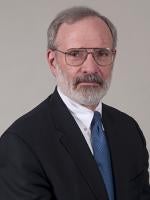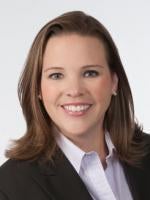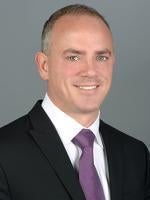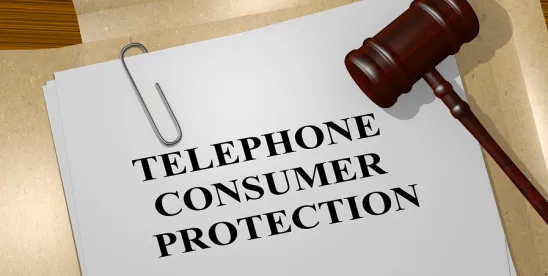The decision last week of the U.S. Court of Appeals for the D.C. Circuit ruling on petitions seeking review of the Federal Communications Commission’s (the “FCC”) 2015 Declaratory Ruling and Order (the “2015 Ruling”) implementing the Telephone Consumer Protection Act (“TCPA”) represents a partial victory for industry. In the decision, the D.C. Circuit reversed the FCC’s guidance on the definition of an automatic telephonic dialing system (“ATDS”) going back to 2003, leaving only the TCPA’s statutory definition. That definition does not, on its face, include predictive dialers.
The decision creates some uncertainty about TCPA liability for calls to reassigned numbers. In addition, callers continue to face the challenge of capturing revocations sent by consumers using methods other than those prescribed by the caller.
ATDS Definition. The TCPA defines an ATDS as “equipment which has the capacity—(A) to store or produce telephone numbers to be called, using a random or sequential number generator; and (B) to dial such numbers.” In the 2015 Ruling, based at least in part on the prior FCC guidance from 2003 and 2008, the FCC concluded that a device’s “capacity” includes its “potential functionalities” with modifications such as software changes. The D.C. Circuit ruled that because, under the 2015 Ruling, “all smartphones qualify as autodialers because they have the inherent ‘capacity’ to gain ATDS functionality by downloading an app,” the FCC’s interpretation of “capacity” was “an unreasonably, and impermissibly expansive one.”
The D.C. Circuit also set aside the FCC’s description of the functions that a device must have the “capacity” to perform for it to be considered an ATDS. According to the D.C. Circuit, the 2015 Ruling indicated that a device must be able to generate and dial random and sequential numbers to be an ATDS but also suggested that a device could still qualify as an ATDS even if it lacked that ability. The court observed that “it might be permissible for the [FCC] to adopt either interpretation,” but “cannot, consistent with reasoned decisionmaking, espouse both competing interpretations in the same order.”
The court further noted that the ruling was “also unclear about whether certain other referenced capabilities are necessary for a dialer to qualify as an ATDS.” For example, the 2015 Ruling indicated that the “basic function” of an autodialer is to dial numbers without human intervention. The D.C. Circuit also noted that the 2015 Ruling stated that another “basic function” of an ATDS is “to dial thousands of numbers in a short period of time” but gave no additional guidance as to whether “that is a necessary condition, a sufficient condition even if neither necessary nor sufficient, or something else” and did not indicate what would qualify as “a short time period.”
The TCPA provides that without the prior express consent of the called party or for emergency purposes, it is unlawful for any person “to make any call” to a cell phone number using an ATDS. (emphasis added). While not raised in the petitions challenging the 2015 Ruling, because of the “potential interplay with the distinct challenges petitioners do raise, the D.C. Circuit noted that the ruling “endorsed a broad understanding under which the statute prohibits any calls made from a device with the capacity to function as an autodialer, regardless of whether the autodialer features are used to make the call.” The court observed that the FCC could revisit that issue in a future rulemaking or declaratory order.
Reassigned Numbers. As noted above, the TCPA’s autodialed call prohibition excepts calls made “with the prior express consent of the called party.” Addressing the question of who is the “called party” when a consenting party’s number is reassigned, the FCC concluded in the 2015 Ruling that the “called party” is the person actually reached after reassignment (thereby extinguishing the consent given by the number’s previous holder.) The FCC also provided that, after reassignment, a caller who is unaware that a consenting party’s cell number had been reassigned can make one post-assignment call without incurring TCPA liability.
The D.C. Circuit also set aside the FCC’s one-call safe harbor as arbitrary, for reasons that included the FCC’s failure to explain why “a caller’s reasonable reliance on a previous subscriber’s consent necessarily cease[s] to be reasonable once there has been a single, post-assignment call.” While concluding that it was permissible for the FCC to interpret the “called party” to mean the current subscriber rather than the intended recipient, the court nevertheless also set that interpretation aside because of concern that if it were only to set aside the one-call safe harbor, that “would mean that a caller is strictly liable for all calls made to the reassigned number, even if she has no knowledge of the reassignment.” (emphasis provided).
Revocation of Consent. The D.C. Circuit sustained the FCC’s conclusion in the 2015 Ruling that a called party can revoke consent to receive autodialed calls at a wireless number “at any time and through any reasonable means that clearly expresses a desire not to receive further messages.” It also sustained the FCC’s refusal to allow callers to unilaterally prescribe an exclusive means for consumers to revoke consent. However, in response to concerns expressed by the petitioners that the FCC’s ruling would make it burdensome to adopt systems to implement revocations using methods chosen by consumers, the court observed that “callers will have every incentive to avoid TCPA liability by making available clearly-defined and easy-to-use opt-out methods.” According to the court, if such methods are afforded to consumers, consumers’ use of “idiosyncratic or imaginative revocation requests might well be seen as unreasonable” and might also indicate that the consumer did not have a reasonable expectation that he or she had effectively communicated the revocation.
The court noted that, as the FCC conceded, the 2015 Ruling did not address “revocation rules mutually adopted by the contracting parties.” As a result, the D.C. Circuit did not consider the parties’ ability to agree upon revocation rules, leaving the Second Circuit’s Reyes decision as the only circuit court ruling on the issue. In Reyes, the Second Circuit held that TCPA consent cannot be revoked when it is part of the bargained for exchange memorialized in the parties’ contract.
Healthcare Treatment Exception. Also sustained by the D.C. Circuit was the FCC’s exemption from the autodialer prohibition’s consent requirement for certain calls involving healthcare treatment. It ruled that the exemption was not arbitrary because it did not allow certain healthcare-related marketing calls.
Our Observations. While the D.C. Circuit’s decision means that a smartphone cannot qualify as an ATDS because of its ability to potentially function as an ATDS, it did not definitely hold what should qualify as an ATDS. Given that the FCC will likely provide further guidance, companies should engage the assistance of counsel in determining how the decision impacts an assessment of whether equipment qualifies as an ATDS.
In setting aside the FCC’s one-call safe harbor as well as the FCC’s interpretation that the “called party” means the current subscriber rather than the intended recipient, the D.C. Circuit has potentially given callers some relief from TCPA liability for calls to reassigned numbers. However, by also concluding that it was permissible for the FCC to interpret the “called party” to mean the current subscriber rather than the intended recipient, any such relief may be short-lived should the FCC reinstate that interpretation. Finally, because callers continue to face the challenge of capturing revocation because of the D.C. Circuit’s willingness to leave the method for revoking consent to the choice of consumers, companies will want to consult with counsel as to the best methods for addressing that challenge.







 />i
/>i
